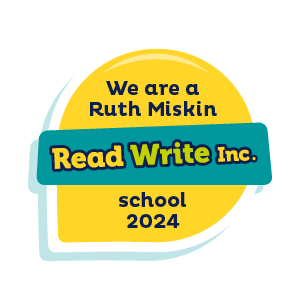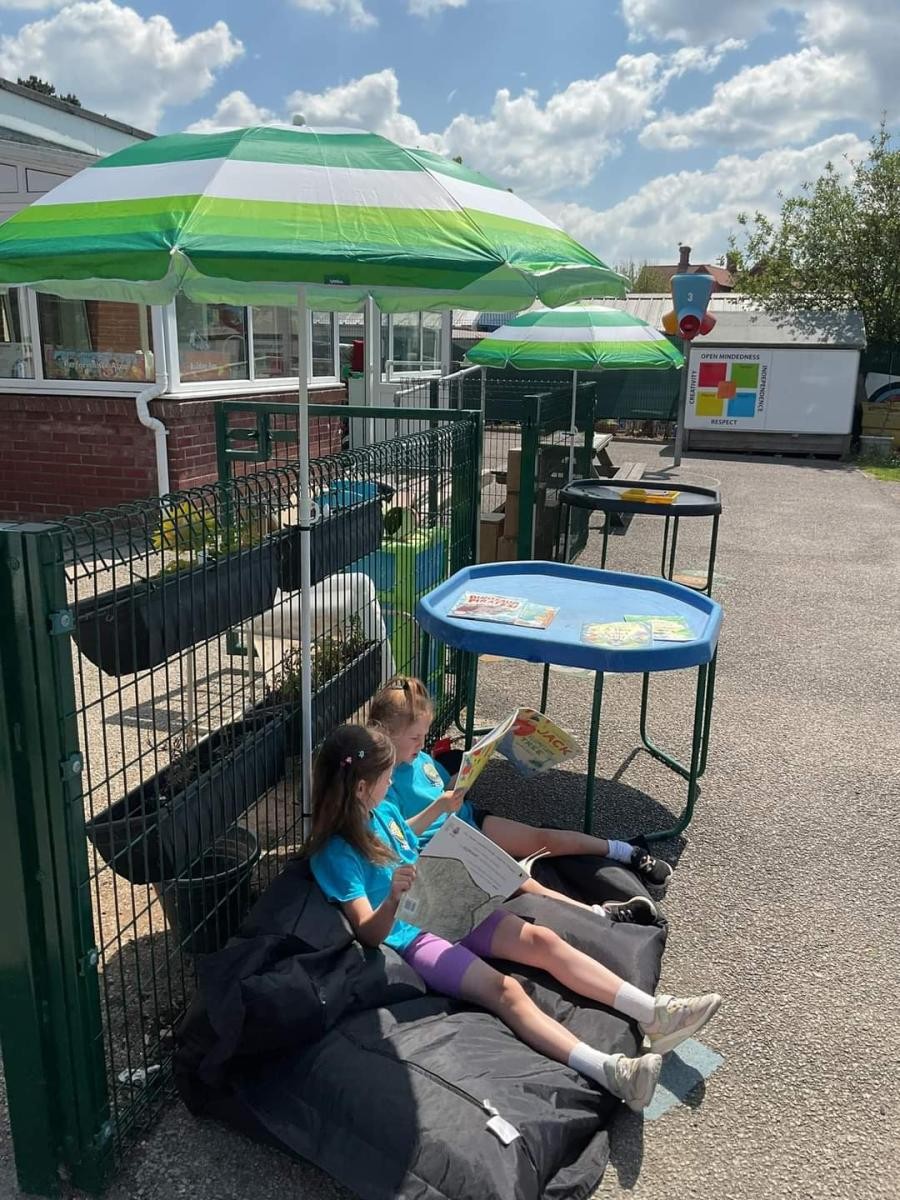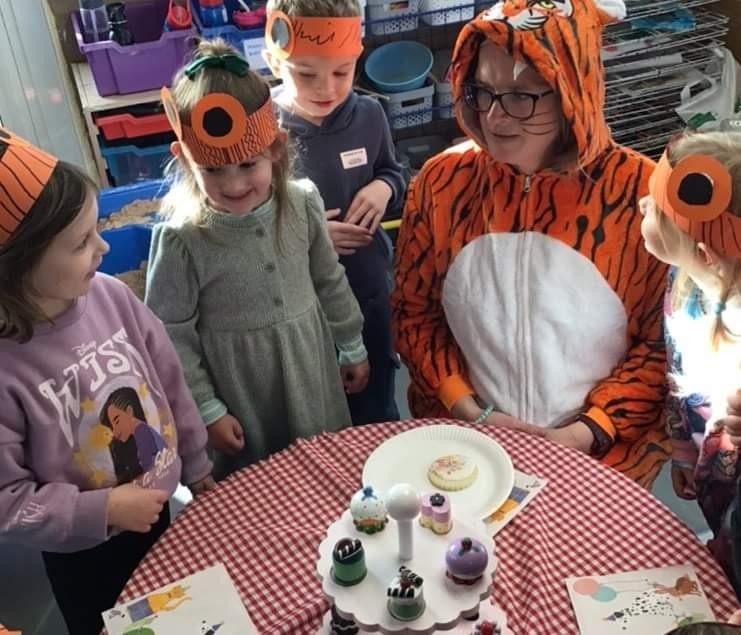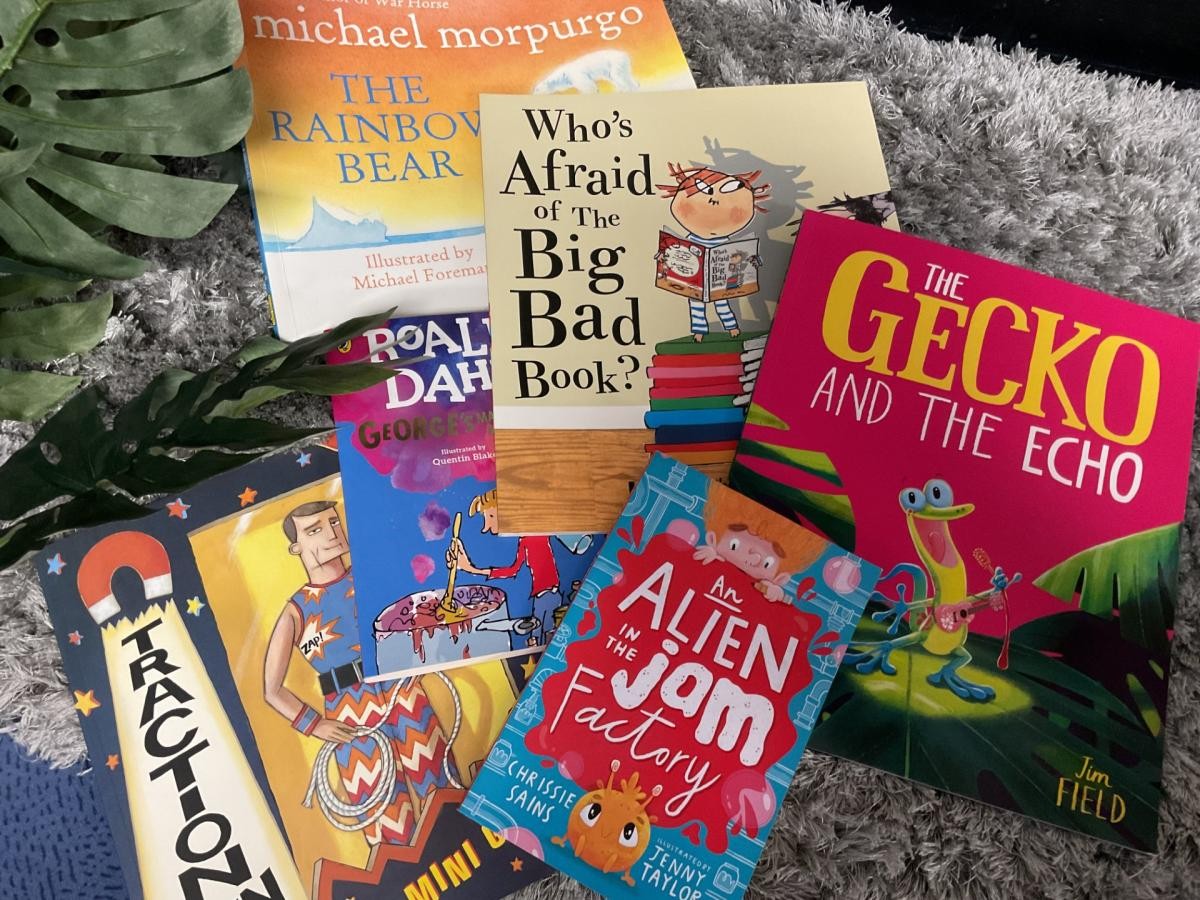The importance of reading at home and sharing stories
We also understand that reading at home (with and to your child) is crucial, not only for reading but for language development. In a study of our EYFS children last year, children who were reading 3 times a week or more were exceeding in their reading at school.
Taken from the Pearson website:
"Evidence suggests that children who read for enjoyment every day not only perform better in reading tests than those who don’t, but also develop a broader vocabulary, increased general knowledge and a better understanding of other cultures."
A recent study showed that children who never have stories read at home could potentially know over a million less words than children who have stories daily by the age of 5.
We will be relaunching our exciting Rocket Reader Scheme which celebrates reading at home by obtaining certificates and prizes from Miss Holt.
Storytimes are an important part of our school day. Staff love to share their enthusiasm of books by getting into character and having fun with our stories. In EYFS, children vote each day for a book they want to share as a class.
How do we teach reading/phonics?
At Bude Primary Infants we use Read, Write Inc phonics scheme daily to teach children the sounds that letters make. We learn to read these sounds and then blend through Fred talking e.g. c...a....t...... makes cat.
There is a great video here to watch that shows you all of the sounds that letter make, either singly or with special friends (e.g. sh, igh). There is also lots of information about phonics for parents in the link below.
Children are regularly assessed for their phonics knowledge and then re-grouped with children across their bubble who are developing at a similar level. This allows teaching to be fast paced and carefully matched to their needs.
Each day, children have a speed sound lesson which recaps the sounds they need to learn and introduces a new sound each day. Children then ready green words with these sounds in to practise what they have learned and red words which are not decodable (cannot be Fred talked like was which sounds like it should be woz). Red words just need to be learned through repetition and reading.
Children are then given the opportunity to practise writing words using their new sounds and also read a text, taking turns with a partner.
Children bring 2 reading books home. A copy of the book they are reading in class and another that links closely to their class book.
BEYOND RWI
We are committed to nurturing a love for reading in our children and providing them with enriching experiences through a variety of high-quality texts. We believe that a strong foundation in reading is essential for academic success and personal growth. That's why we prioritise literacy development throughout our curriculum.
Once our children have completed our Read Write Inc. (RWI) including Phonics scheme, they transition into daily lessons where they have the opportunity to engage with whole, high-quality books. These books start with picture books and gradually progress to chapter books, allowing children to explore different genres, themes, and writing styles.
To ensure meaningful engagement with each book, we have meticulously planned lesson plans for every text, drawing from the latest research outlined in the Reading Framework of 2023. https://www.gov.uk/government/publications/the-reading-framework-teaching-the-foundations-of-literacy
This framework provides a structured approach to reading instruction, focusing on key elements such as comprehension, vocabulary development, and critical thinking skills. Our lesson plans follow this format, ensuring that each session maximizes learning and enjoyment.
At the conclusion of each book, children participate in writing and filming their own book reviews. This activity not only encourages reflection on the text but also allows children to practice their writing and presentation skills in a creative way. We believe that sharing their thoughts and opinions on literature empowers children to become confident and articulate communicators.
At the end of each book the children we use a scheme called Cracking Comprehension where children will do a week of more formal reading comprehensions tasks based a extracts from different texts
Children no longer take home RWI books at this stage. They have access to carefully selected chapter books. These are colour coded in terms of challenge to support children in selecting books appropriate for them, but they have the freedom to choose which books they read.
Children will:
- Have the fundamental skills needed to be able to read.
- Be passionate about reading, developing positive attitudes and understanding what they have read.
- Talk positively about books and recommend them.
- Understand how to infer, retrieve, predict, summarise and explain.
- Leave us with the necessary skills to access the reading and vocabulary demands of the Junior curriculum and for them to be successful communicators throughout their lives.




